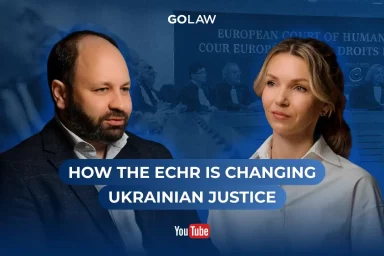Ukrainian banks vs unfair corporate debtors: the recent context
Contents
Non-performing loans (NPL) are one of the most popular types of credit contract breaches that substantially distorts the economy of any country and damages the health of the banking system as a whole. In Ukraine, the issue is especially acute: nearly a half the of credit portfolio of Ukrainian banks is non-performing .
Most of the problematic debtors are corporate clients, and the reasons for that vary from solvency problems to fraud and a range of other unfair actions on part of the businesses’ owners.
The National Bank of Ukraine is permanently encouraging banks to reduce the level of NPL using different means available. However, this task is rather challenging, mostly due to obstacles artificially created by unfair debtors.
Takeaway points from famous cases
Within the last two years, several high-profile problematic debt cases were widely discussed in the media.
In this regard, the T.M.M. Firm vs Alfa-Bank case is worth considering. T.M.M. Firm is a large Ukrainian developer. The value of the Firm’s debt before Ukrsotsbank (which was later purchased by Alfa-Bank) was EUR 15 million. The bank exhausted all the possible pre-trial remedies to recover the debt, yet unsuccessfully. Neither the restructuring, nor the proposal to the Firm to purchase its own debt with a large discount enabled the bank to receive any repayment. The bank was forced to apply to the court, which originally took the side of the bank and after that the Firm’s property was set up for auction.
However, as it turned out, that was not the end of the play. The Firm challenged the legality of the auctions in court. After loosing in these proceedings, the Firm attempted to cancel the decision of the arbitrationl court regarding debt recovery, which was decided in favour of the bank. Surprisingly, the courts took the side of the Firm, despite the previous opposite findings of the Supreme Court (including the Grand Chamber) in similar cases.
This case demonstrates how the contradictory court practices can negatively impact the creditors’ rights even when the existing legislative mechanisms are used properly. Also it shows how it is important to elaborate a very detailed legal strategy in the debt restructuring case and to consider all risks from the very beginning.
The second complicated case is the one related to T.B.Fruit Group, the largest producer of juices and fruit concentrates in Ukraine. The companies of the group owed a significant amount to Delta Bbank, which went bankrupt. One of the possible causes of the bank’s bankruptcy is the preceding set-off between Delta bank and third companies investors that have deposits in the bank, after which Delta Bbank’s investors became the Group’s companies’ creditors. As a result of such allegedly illegal actions, the Deposit Guarantee Fund for individuals’ deposits suffered losses. The claims against to the Group’s companies were purchased from the Fund by the Investohills Vesta financial company, which is currently engaged in court proceedings regarding debt recovery.
However, the most interesting thing is that one of the group’s companies has insolvency proceedings opened at the request by application of an associated enterprise. This means that insolvency might be artificial with the aim of avoiding debt repayment.
In such cases it is very important for the creditor to act promptly and to challenge the illegal or artificial bankruptcy of the borrower until the court sets out the moratorium for the out-of-court foreclosure on the collateral or finds the debtor insolvent.
The case of Desko Ukraine is another well-known recent NPL case. The enterprise manufactured sun feed oil in Kherson Oblastregion. The credit has been granted to the company West Finance and Credit Bank, and one of the company’s founders acted as a guarantor. The debt then became problematic and the restructuring did not resolve the issue. Thus, the Bank initiated court proceedings. The guarantor lodged a counter-claim, requesting the court to declare the guarantee agreement invalid. The court took the side of the bank. However, the Bank’s officials informed the media that they discovered the loss of the property subject to foreclosure after arriving at its location.
This case shows how it is important to monitor regularly the condition of the collateral and require the borrower to provide evidence proving that the collateral still exists and is maintained properly.
One more example of an allegedly unfair debtor’s behavior can be found in a case of Kyiv-Odyah . The circumstances are suspicious: the debtor submitted that the claims under the credit agreement were assigned by Ukrgazbank to a company Jupiter Service Ltd, registered in the United States, while the bank denied that such an agreement was signed.
Although the court of first instance ruled in favour of the bank, this judgment was cancelled by the upper courts and the claim assignment agreement was declared properly concluded. According to the final judgment, the debtor has fully complied with the obligations before the new creditor and thus, any obligations before the bank are terminated. Numerous criminal cases were initiated on the fact that officials of Ukrgazbank did not sign the contested assignment agreement. However, all of them are still pending.
NPL: the major reasons
The above mentioned cases demonstrate one of the reasons for a high level of NPL in the Ukrainian banking system: the unwillingness to repay the debts and related unfair actions of the debtors.
This is obviously not the only reason for the problem. Corporate debtors often raise arguments related to financial problems in court proceedings. Bankruptcy is also frequently at stake, yet it must be taken into account accounts must be taken that bankruptcy may be an artificial strategy to avoid debt repayment.
The reports of the National Bank of Ukraine state that the COVID-19 related crisis can have a significant negative impact on the solvency of the corporate debtors. The most affected branches are metallurgy, machinery, commercial real estate and non-food retail. However, the crisis, according to the estimations of the National Bank of Ukraine, will dramatically influence only the banks, which have problematic portfolios for years due to credits granted to associated enterprises and insufficient risk management.
Enforcement of creditors’ rights: the ways out of the trap
It is no big secret that court disputes for debt recovery can last for years and not reach any result acceptable for the creditor.
As for out-of-court proceedings, their effectiveness and duration vary significantly depending on the goal of the creditor and the peculiarities of the situation, especially the behavior of the debtor. The foreclosure can become challenging because of artificial arrests of immovable property, numerous court claims lodged by a debtor to prevent the recovery, fake insolvency proceedings, etc.
The bank, for its part, can aim to bankrupt the debtor, or to support it. In view of the aim, different means of restructuring or other measures can be used.
Therefore, the action plan in each case should be drawn up individually, with due account of all the circumstances. In any event, the mission to recover problematic debts at least in part is possible.
Sign up to be aware
New achievements are inspired by information. GO further, don’t miss out GOLAW news and legal alerts
Our expertise
-
- Energy and Natural Resources
- Antitrust and Competition
- Banking and Finance
- Compliance, Corporate Governance and Risk Management
- Corporate and M&A
- Criminal and White Collar Defence
- Defense in Anti-corruption procedures and regulations
- Labor and Employment
- Natural Resources and Environment
- Government Relations (GR)
- Insolvency and Corporate Recovery
- Intellectual property
- International trade
- Legal support of business and private Сlients in Germany
- Litigation and dispute resolution
- Private clients
- Real Estate and Construction
- Restructuring, Claims and Recoveries
- Martial Law
- Tax and Customs
-
- Agribusiness
- Aviation
- Chemical industry
- Engineering, Construction and Building Materials
- Environment and Natural Resources
- Financial institutions
- IT and AI
- Industry and manufacturing
- Healthcare industries, Life sciences and Pharmaceuticals
- Media, Entertainment, Sports and Gambling
- Retail, FMCG and E-Commerce
- Transport and Logistics
We use cookies to improve performance of our website and your user experience.
Cookies policy
Cookies settings







